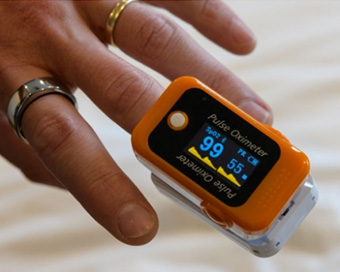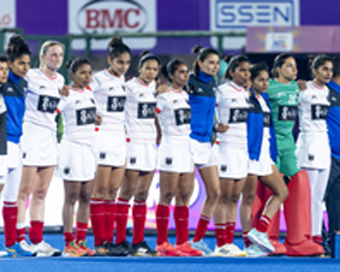Gallery
 PM Modi visit USA
PM Modi visit USA Only the mirror in my washroom and phone gallery see the crazy me : Sara Khan
Only the mirror in my washroom and phone gallery see the crazy me : Sara Khan Karnataka rain fury: Photos of flooded streets, uprooted trees
Karnataka rain fury: Photos of flooded streets, uprooted trees Cannes 2022: Deepika Padukone stuns at the French Riviera in Sabyasachi outfit
Cannes 2022: Deepika Padukone stuns at the French Riviera in Sabyasachi outfit Ranbir Kapoor And Alia Bhatt's Wedding Pics - Sealed With A Kiss
Ranbir Kapoor And Alia Bhatt's Wedding Pics - Sealed With A Kiss Oscars 2022: Every Academy Award Winner
Oscars 2022: Every Academy Award Winner Shane Warne (1969-2022): Australian cricket legend's life in pictures
Shane Warne (1969-2022): Australian cricket legend's life in pictures Photos: What Russia's invasion of Ukraine looks like on the ground
Photos: What Russia's invasion of Ukraine looks like on the ground Lata Mangeshkar (1929-2022): A pictorial tribute to the 'Nightingale of India'
Lata Mangeshkar (1929-2022): A pictorial tribute to the 'Nightingale of India' PM Modi unveils 216-feet tall Statue of Equality in Hyderabad (PHOTOS)
PM Modi unveils 216-feet tall Statue of Equality in Hyderabad (PHOTOS)JSW Soorma Hockey Club are a step away from qualifying to the final of the Women’s Hocke
- Aus Open: Sinner survives early test to begin title defense
- Shiva Thapa, Sachin Siwach shine on Day 2 of men’s Boxing Nationals
- Freya Deshmane wins gold in first Winter Horse Show organised by Amateur Riders’ Club
- Salah sets Premier League record in Liverpool's draw at Newcastle
- India Open Competition in Shotgun begins in Jaipur, paving way for Nationals' qualification
Pulse oximeters work less well on darker skin: NHS England Last Updated : 02 Aug 2021 07:50:49 AM IST 
Pulse oximeters used extensively during the coronavirus pandemic to detect falls in oxygen levels in Covid patients, work less well in people with darker skin, warned experts from NHS England and medicines regulator the MHRA.
The device beams light through the blood and skin pigmentation and may sometimes overestimate oxygen levels depending on how light is absorbed, the BBC reported.The regulators do not advise against the use, but ask "to look for changes over time rather than relying on a single reading and seek advice from a healthcare professional".NHS England is also issuing updated guidance, advising patients from black, Asian and other ethnic minority groups, the report said."Although a valuable clinical tool, clinicians are increasingly becoming aware of the potential errors or inconsistencies associated with pulse oximeters, so we need to have this in mind when using the devices," Dr. Habib Naqvi, director of the NHS Race and Health Observatory, was quoted as saying.In people with Covid-19, oxygen levels in the blood can drop to dangerously low levels without them noticing -- a condition known as "silent hypoxia".Inaccuracies in pulse oximeter readings in black Covid patients were observed by Dr. Omar Jundi, an intensive care consultant in West Yorkshire, the BBC reported."It's something I would pick up on at least once a day, in maybe two or three patients. It's an aspect of the sort of systemic biases and systemic racism that occur in the NHS and the care that we provide in the NHS every day," he said.The UK figures show that people from black, Asian and other ethnic minority groups are more likely to get Covid, and become seriously unwell or die from it. Experts believe the inaccuracies in pulse oximeters may be a contributing factor to this, the report said."We need to ensure there is common knowledge on potential limitations in healthcare equipment and devices, particularly for populations at heightened risk of life-changing illness, this includes black, Asian and diverse communities using pulse oximeters to monitor their oxygen levels at home," Naqvi said.He added it was vital that culturally-inclusive research now took place to ensure that pulse oximeters performed accurately on people with darker skin tones, the report said.IANS London For Latest Updates Please-
Join us on
Follow us on








172.31.16.186







